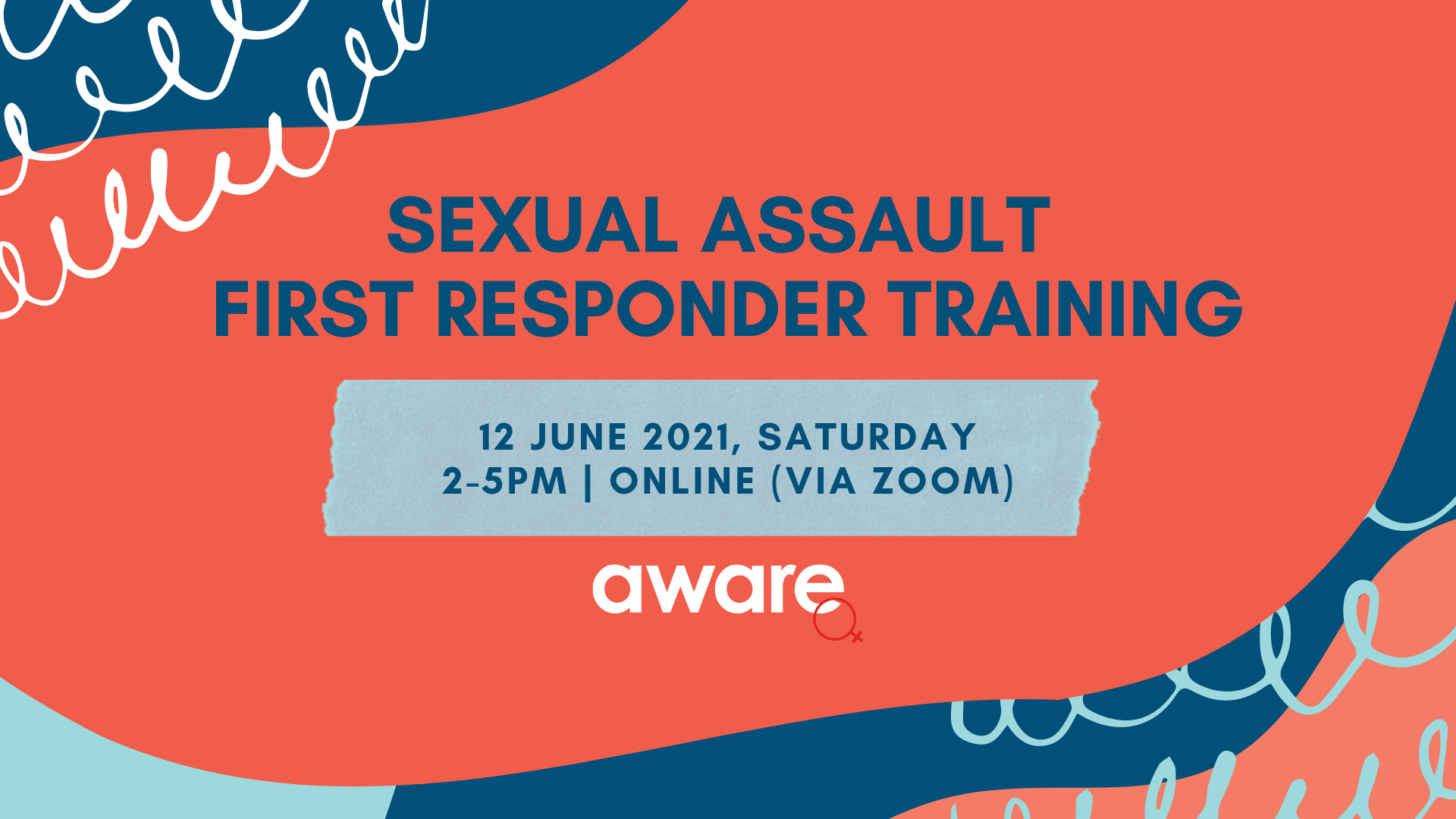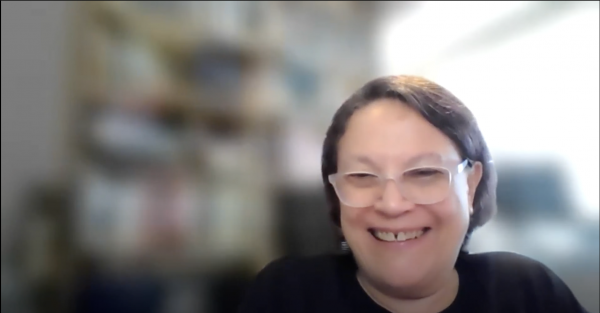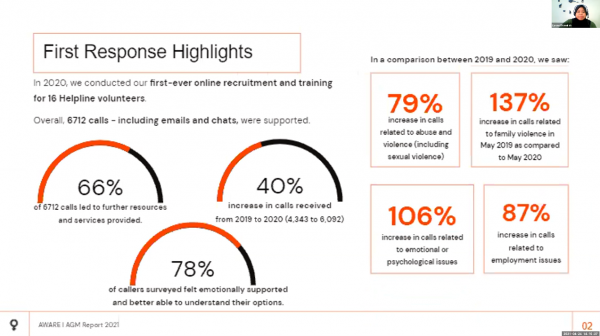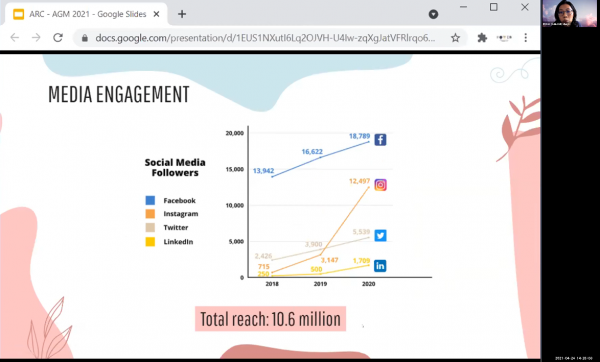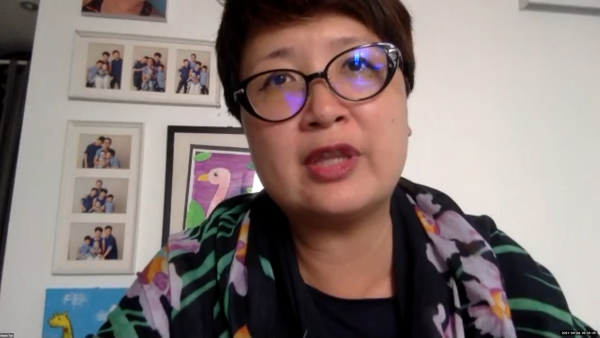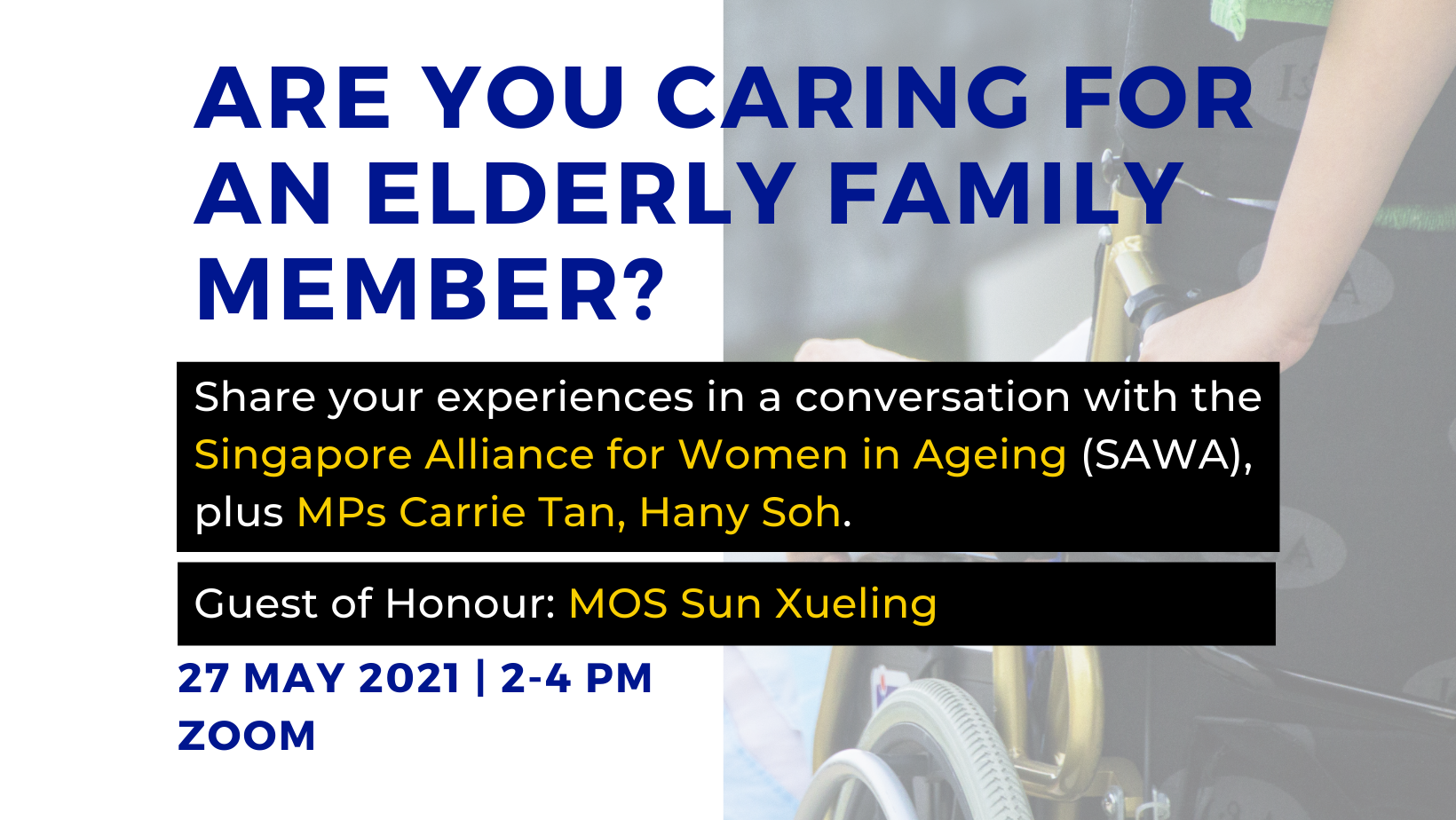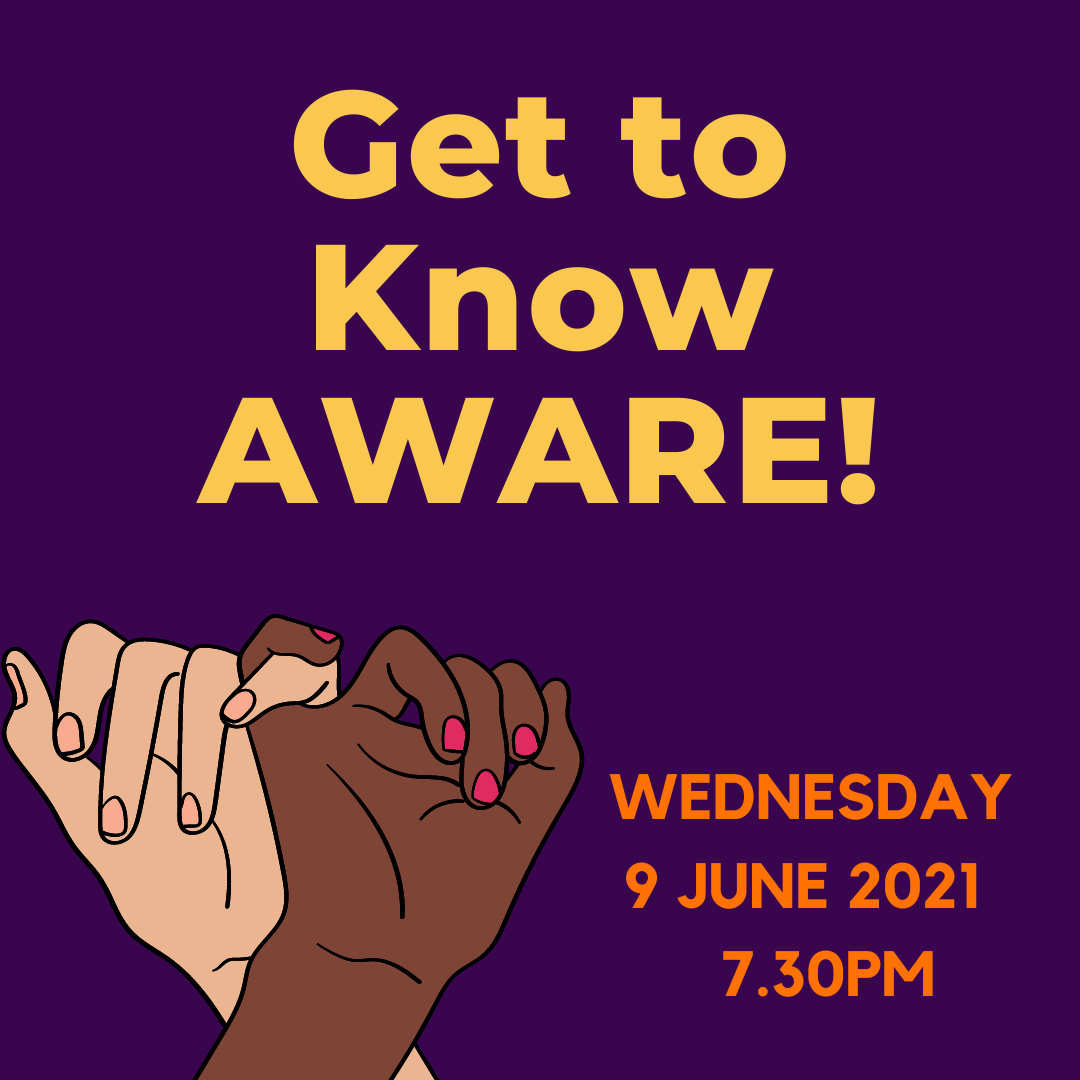
Content warning: child sexual abuse and domestic violence
Our “Your Stories” series are submissions shared with us via email or in one-on-one interviews, for the purposes of our research and campaigns. All names have been changed (unless the use of real names was explicitly permitted by the author), and we have sought permission to publish from the authors/interviewees themselves. The opinions expressed in these posts do not represent those of AWARE.
Davina: I was born into a complicated family situation.
When I was 12, I learned that the person I called “dad” was not actually my biological father. It turned out that my mother had had a relationship with her husband’s younger nephew. This relationship endured until my mother died from cancer at 43, when I was 8.
Two children were the product of that adulterous relationship. I was the younger. The older child was given away at birth to another Singaporean couple. Back in the 1960s, this was a fairly regular occurrence, particularly in poorer families, and there was no need for any legal adoption process to be followed.
I was kept. The family that I became a part of, all living under the same roof, now consisted of “dad”, my mother, her lover (my biological father), plus three other older siblings. I had a sister seven years my senior, and two brothers 10 and 12 years my senior. My “dad” fathered all three of my siblings before my mother’s affair began.
The younger of my brothers had learning difficulties, possibly caused by dyslexia. At the time, though, those kinds of conditions were not readily identified or dealt with properly.
Though my elder brother and sister doted on me, I don’t remember having had any sense of closeness in my relationship with this second brother. The only real enduring memory I have is him sexually abusing me from when I was 6 until I was in my teenage years.
The abuse always took place at home. He’d been given the responsibility of babysitting me. He didn’t attend school, and the two of us were often left alone in our HDB apartment. My mother was in and out of hospital a lot, suffering through many years of cancer treatment. My “dad” worked from sunrise to sunset as a labourer. My biological father also worked all day. My sister worked in a factory from the age of 13; she never attended school (again, a common thing in Singapore back in the 1960s and ’70s). My older brother did attend school and studied there most days.
I cannot remember the very first time that the abuse took place, although I do recall very vividly that a pattern of behaviour soon emerged. When we were finally alone in the apartment, my brother would instruct me to sit beside him on the floor of the living area. He would always be clothed in shorts and underpants, but no shirt. I was fully clothed.
He would then open up a pornographic magazine. Where he’d obtained these magazines, I never knew. I was instructed to look at the pictures with him. Although I often protested, he was older and threatened me with a beating if I didn’t follow his demands. I was scared.
Then he’d grab my hand, lead me to the apartment’s common sleeping area and strip down. He would undress me, then instruct me to re-enact the sex acts that I’d seen in the magazine. He would force me to lie down naked, insert his fingers into my vagina, instruct me to perform fellatio on him or give him a hand job. I was always forced to perform these acts to the point of his ejaculation.
I recall that he attempted full penetration from the very earliest of these encounters. However, because I was so young and small, it didn’t successfully happen until several years later, when I was around 9 or 10 years old (I forget exactly when or have erased the memory). But when it became physically possible, full penetrative intercourse, plus all of his other demands, became his normal approach. I was his unwilling, powerless victim.
These events tended to take place at least once per month. Every time we were left alone in the apartment, he would turn to the abusive behaviour. Each time I was threatened not to tell anyone, otherwise he’d beat me. I was too young to really know what was going on and, more importantly, what to do about it. I’d had no sex education at this point in my life, and I didn’t dare confide anything in any of my other siblings. I had no idea how to even raise the topic with them.
My brother’s opportunities for abuse became more available after our mother died and, two years later, my sister got married and moved out. As I grew older, knowing that what I was being subjected to was wrong, but still scared to talk with anyone else about it, I tried often to find a reason to leave home. Yet the abuse continued. After some years, he stopped using magazines as prompts. By then, he expected that I knew exactly what he wanted and that I would comply.
A few key things happened between the ages of 12 and 16 that finally saw me having the awareness and the courage to resist his demands.
First: Following my mother’s death and my discovery of my true parentage, anger and hatred started to well up in me. It was a catalyst for me regularly running away from home and crashing at the homes of a few of my classmates. Their parents typically welcomed me in, without knowing what had led me to seek sanctuary there. This was my regular escape from the abuse at the hands of my brother, sometimes lasting weeks at a time. Away from home, I felt safe and happy. I still attended school. My family never reported me missing or made any attempt to find me. When I did finally gravitate towards home, nothing was ever said. I was never questioned. Nobody had the emotional intelligence to find out the root cause of my troubles.
Second: In Sec 2, I received my first formal sex education, and also started getting my period. It was only then that I learned that what I was being subjected to at home could lead to me getting pregnant. Now I could more clearly rationalise my hatred for it.
At 15, I started dating boys of my choosing, and the abuse ceased. My brother still regularly tried to instigate further events by exposing his erect penis to me. But by now I was old, wise and brave enough to simply walk away and leave the apartment.
When I reached the age of 18, by then having left school and started working as a clerk at a local company, I moved into a new family home—my eldest brother’s new apartment, which he’d bought after getting married. For the first time ever, I had my own room and did not have to share sleeping space with anyone. I was able to bring boyfriends home and spend time with them in my own room, on my own terms.
The one and only time that the matter of my childhood abuse was discussed within the family was when, at 40, I decided to broach the subject with my older sister. We had always been very close emotionally, and yet it took me until middle age to pluck up the courage to share my story with her.
To my surprise and horror, her response was that she had suffered the same abuse from the same brother.
To this day, I wonder if the abuse inflicted upon her was the thing that drove her to leave home at 16, married and pregnant. I also question why she left me in that environment without saying anything, without asking if I was experiencing the same harm. Without checking that I was OK.
Unfortunately I will never know. My sister passed away when I was 49 and she 56. We never did revisit the discussion that we’d had some 9 years earlier. It can now never be concluded. Rest in peace, Mary.
****
At age 20, tired of office work, I applied to join the SAF and I was accepted. I signed up for a six-year contract in a backroom support role.
During my initial training, I met a male trainee, and he immediately expressed a personal interest in me. Within two weeks he had asked me out on a date. That was the beginning of the next 30 years of my life!
Initially, I wasn’t overly keen on a relationship with this new suitor. A few other guys at that time were trying to win my favour. This new guy wasn’t a standout prospect in my mind. However, within a few months I felt that his intentions were sincere and I thought that he was a decent guy and so we started dating.
At that time, I was seeking psychiatric help. The SAF Medical Officer had made a referral as I had been suffering from depression. The psychiatrist diagnosed PTSD stemming from my childhood abuse. He spoke with my then-boyfriend separately, and then gave me his advice: I should pursue a relationship with my boyfriend, because no other man would accept me with the mental and physical baggage I was carrying.
I think back on those words and wonder how a so-called professional could put such nonsense in my head!
We were married in Singapore when I was 25. He was 27. He was still in the armed forces. I had left to become a legal secretary.
We were living with his parents and his sister in an HDB apartment. I got pregnant with our first child within a month of our marriage.
The first two years of marriage were uneventful, other than me becoming a mother. He travelled overseas frequently, often for a few months at a time. All seemed calm. We had settled into a routine, including what I would describe as a routine sex life.
The first sign of trouble happened when our child was around a year old. While my husband was overseas, a hand-written Christmas card arrived addressed to him. Suspecting something wasn’t quite right, I opened the envelope. A woman living in Thailand had sent it. My husband’s name was on the card. The greeting expressed way more than friendship. I was shocked and sad. In that moment I felt that my world had collapsed.
I confronted him immediately over the phone. He denied everything. We quarrelled on that call, and on daily calls for a week thereafter, until he returned home. The quarrelling continued. Still he denied things. I felt very upset and decided to seek relationship counselling alone. He refused to take part. This helped me to find some calm but didn’t take away the feelings of mistrust and hurt.
A two-year overseas posting for my husband was impending. My thoughts and focus turned to that. We decided to press ahead with the move despite the fact that we were now on bad terms. Denial of any affair was still the line I was being fed.
Within a few months of moving, he suggested that we re-start our physical relationship. I was an unhappy participant but felt it was necessary in order to save the marriage. After all, my son wasn’t yet two and we were living in a foreign country.
We were in our own home for the first time. I was left in the house all day looking after our baby. My husband worked, went out socially with colleagues and left me to it. I quickly noticed extreme behaviours in my husband that I’d never experienced while we lived with his parents. He was demanding, controlling and aggressive towards me, and rather OCD. Anything not done to his satisfaction would trigger him. For instance, I was about to fall asleep one night when he came into the bedroom, angry, and instructed me to get up and go re-iron the collar of his work shirt. I’d apparently not done it properly.
The next bombshell happened a year or so after we moved. Having noticed some strange symptoms, I went to see a doctor and was diagnosed with gonorrhea. Further confrontation ensued between my husband and me. Initially there was more denial, then an eventual admission of guilt. There was now no escaping the truth of his adultery. I told him immediately that I wanted a divorce.
However, after he pushed back on that idea, I gave up. We didn’t part ways.
This was a key turning point in our marriage. These events, allied with a change in his job responsibilities, changed his behaviour. He became even more short-tempered. Anything that didn’t go his way would result in him throwing a tantrum. I took the heat, even when his frustrations were not related to my actions or me. I was constantly walking in a minefield.
The instances of his bad temper, control and (verbal, public) putdowns were regular. Things were comfortable enough when he was in a decent mood, but unpredictable and volatile. I thought about leaving often. I tried talking with him often. No deal. He said what I was complaining about was just “our culture”.
Here are some examples of my experiences being humiliated and controlled by my husband over 20 years:
One day, I accompanied my husband on a work trip to Hong Kong. (He was now a commercial pilot.) He bought a toy gun as a gift for our son, and a few other things. He asked me to put the gun inside my luggage, I agreed without thinking about it or asking him why. At the airport, after we’d checked in, he went into the aircraft to prepare for flight. I went to the gate to wait to board. Minutes after I’d sat down, three police officers walked towards me and marched me outside to the tarmac by the aircraft. There was a police van surrounded by more police officers carrying rifles. I could see my checked-in luggage inside the van. I was told that I had a BB gun in my luggage, and that it was an illegal import into Singapore. I panicked, cried uncontrollably, begged for their leniency. I was given a warning and allowed to board the flight.
My husband had been happy to risk my safety for the sake of getting a BB gun into Singapore. It turned out he knew that the gun was an illegal import. That’s why he wanted me to carry it in my luggage. I felt betrayed and used. He laughed it off!
Another time, I was returning home from the supermarket. I parked and brought the groceries in, placing the car key in my handbag. I began preparing lunch for my husband and our boys. Minutes into the prep, my husband walked into the kitchen. The first thing he asked was where the car key was. He had noticed that it wasn’t hanging on the small hook inside the house door.
I responded that it was in my handbag and that I hadn’t yet hung it up. He was very particular and had often dictated that the car key had to be immediately hung up on the hook upon return. In my rush to prepare lunch I’d forgotten. Big mistake! Though I immediately took the key from my bag and place it on the hook, he shouted loudly, calling me “a stupid woman” and “un-teachable”, asking why I never followed his instructions. I pointed out that this matter was insignificant, which was like pouring gasoline on a fire. His anger escalated. I cried for the rest of the afternoon.
There are dozens of other incidents I could write about, many borne of even more nonsensical circumstances that led to completely out-of-control behaviours.
However, and in particular for anyone who can identify with these circumstances, I did eventually find light at the end of a very dark tunnel. I eventually plucked up the courage to leave the marriage and get divorced.
I had the support of my children in this decision. After all, they had seen and heard first-hand what I’d suffered. The children maintain a good relationship with their father, but they totally understood my situation and encouraged me to seek peace of mind. Support from your loved ones and close friends is essential.
I am now living a much calmer and more emotionally fulfilling life. I’m glad that I plucked up the courage to take positive action. It’s never too late to start over and learn something new. I’m in my 50s and I’ve never felt happier.
In terms of my experiences as a child, I have eventually been able to compartmentalise them, partly due to attending self-improvement and leadership training that helped me grow in self-confidence.
My advice is: Don’t let so-called “cultural norms” or dogmatic beliefs keep you from talking with a trusted listener when you know that what you’re experiencing is patently wrong. Culture is no more than a collection of habits formed over time. Habits can be changed, but this needs conscious and focused effort. Have courage and conviction in the face of family or friends who hold old-fashioned thoughts believing them to be life instructions.
And don’t place the burden of responsibility on yourself. Abuse is not your fault. Nobody deserves to be treated as subservient or less than. Everyone is entitled to live a fulfilling and fun life. Life is too short to be lived in fear.
There is help out there.
If you are experiencing any form of distress and need a listening ear, call AWARE’s Women’s Helpline at 1800 777 5555 (Mon–Fri, 10am–6pm).





